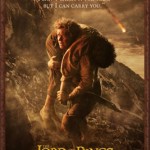
 It is of common knowledge that both Lewis and Tolkien took part in the First World War, and that in the years following the conflict they became distinguished scholars of the English language and literature at Oxford University. Those who accuse these writers of escapism tend to overlook the fact that such a curriculum vitae would make it virtually impossible for them to remain ignorant of, and not to at least in some way reflect in their own writing, the events that changed the world and the literature in the first half of the twentieth century. This paper aims to offer a new approach to the place of The Chronicles of Narnia and The Lord of the Rings in this common context, and also to discuss how these works differ from each other with reference to the way in which they combine Christian and pagan elements.
It is of common knowledge that both Lewis and Tolkien took part in the First World War, and that in the years following the conflict they became distinguished scholars of the English language and literature at Oxford University. Those who accuse these writers of escapism tend to overlook the fact that such a curriculum vitae would make it virtually impossible for them to remain ignorant of, and not to at least in some way reflect in their own writing, the events that changed the world and the literature in the first half of the twentieth century. This paper aims to offer a new approach to the place of The Chronicles of Narnia and The Lord of the Rings in this common context, and also to discuss how these works differ from each other with reference to the way in which they combine Christian and pagan elements.

